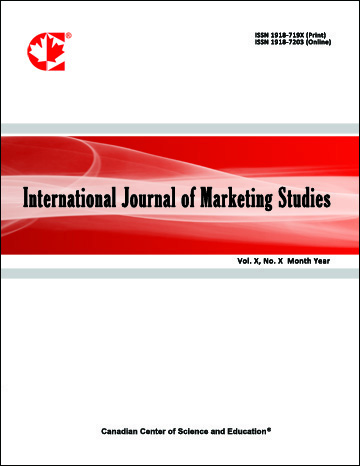Understanding Consumer Attitudes Toward Web-based Communication Tools
- Raghu Kurthakoti
- Siva Balasubramanian
- John Summey
Abstract
Motivated by the growing role of online transactions and Web-related Word-Of-Mouth (WWOM) in the consumer behavior domain, we propose a theoretical model that relates two antecedents (consumers’ community and content ownership) to attitudes toward four WWOM tools (Viral Marketing, Consumer-Produced Ads, Consumer Web Logs, and Collaborative Filters). The model and related hypotheses are empirically tested with the structural equation modeling (SEM) approach, using data from a large-scale survey. Results validated most of the proposed hypotheses and generated new insights. For example, we found that the direct relation between consumers’ community and their attitude toward blogs was completely mediated by their sense of content ownership. Finally, we delineate the limitations of the study and outline directions for future research.
- Full Text:
 PDF
PDF
- DOI:10.5539/ijms.v8n3p1
Journal Metrics
Google-based Impact Factor (2021): 1.34
h-index (July 2022): 70
i10-index (July 2022): 373
Index
- Academic Journals Database
- CNKI Scholar
- EconBiz
- Electronic Journals Library
- Excellence in Research for Australia (ERA)
- GETIT@YALE (Yale University Library)
- Harvard Library
- IBZ Online
- Infotrieve
- JournalTOCs
- LOCKSS
- MIAR
- PKP Open Archives Harvester
- RePEc
- ResearchGate
- ROAD
- Scilit
- SHERPA/RoMEO
- Stanford Libraries
- UCR Library
Contact
- Alyssa SunEditorial Assistant
- ijms@ccsenet.org
